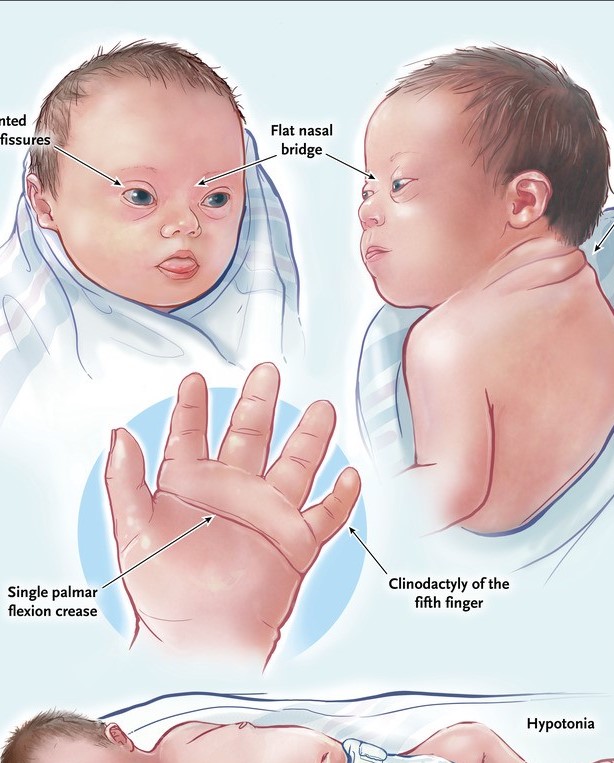A public health Professional Mrs. Debbie Mangortey has revealed that Women over age 35 are at higher risk of giving birth to a child with a Down Syndrome.
In the early 1900s, researchers noticed children with the condition were frequently the last-born in large families and came shortly before a woman experienced menopause. At the time, they believed the condition was a sign that the mother had simply exhausted her reproductive potential.
In an interview with Nana Konadu Okontie on Plan B FM ‘Apomuden fie’ Mrs. Debbie Mangortey said maternal age matters for the development of Down syndrome.
“Most people are born with 46 chromosomes (clusters of genes) in the nucleus of every cell. The chromosomes form in pairs with 23 from the mother and 23 from the father. Down syndrome happens when a baby is conceived with a full or partial extra copy of one of these chromosomes specifically chromosome 21”, she said.
“Experts have pinpointed three different types of Down syndrome: trisomy 21, mosaic Down syndrome, and translocation Down syndrome. Trisomy 21; Most people have two copies of chromosome 21 in each cell, but those with trisomy 21 have three copies. About 95 percent of Down syndrome cases are trisomy 21 whiles Mosaic Down Syndrome is where cells have two copies of chromosome 21 like usual, others have an additional third copy. Mosaic Down syndrome occurs in 1-2 percent of cases, and affected people may have fewer physical and intellectual characteristics of the condition’’, she remarked.
“Translocation Down syndrome is where there are two full copies of chromosome 21 in the cell, as well as a partial extra chromosome 21 stuck to an entirely different chromosome. This is the result of a process called translocation, and it occurs in 3-4 percent of Down syndrome cases,” she further explained.
An answer to a questions whether expectant mothers could experience some symptoms of Down Syndrome during pregnancy, she noted “Though the likelihood of carrying a baby with Down syndrome can be estimated by screening during pregnancy, you will not experience any symptoms of carrying a child with Down syndrome. At birth, babies with Down syndrome usually have certain characteristic signs, including, flat facial features, small head and ears, short neck, bulging tongue, eyes that slant upward, atypically shaped ears”.
“An infant with Down syndrome can be born an average size, but will develop more slowly than a child without the condition. People with Down syndrome usually have some degree of developmental disability, but it is often mild to moderate. Mental and social development delays may mean that the child could have impulsive behavior, poor judgment etc.”
She also said People with Down syndrome are also more prone to infection. They may struggle with respiratory infections, urinary tract infections and skin infections.










Discussion about this post